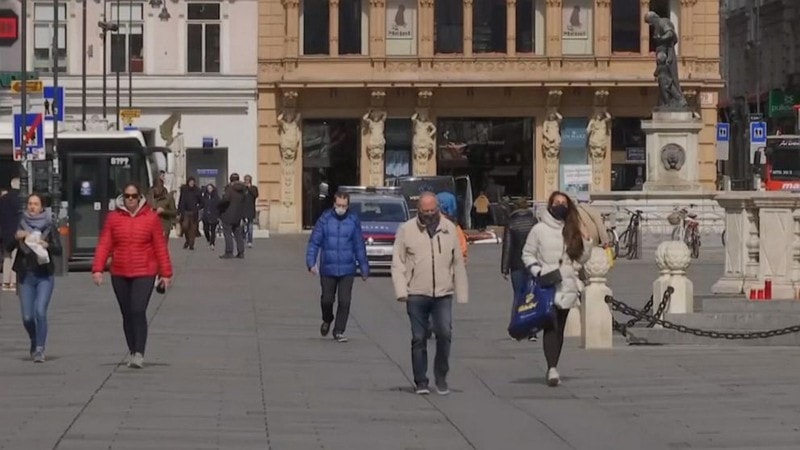Europe begins to cautiously ease social distancing
The easing of social distancing is being carried out by European countries very carefully, avoiding any mistakes that could cause the epidemic to flare up again.
As the Covid-19 pandemic begins to subside in some European countries, the first steps towards easing social distancing measures are being gradually taken. However, these steps are being taken very cautiously by European countries, avoiding any mistakes that could potentially cause the pandemic to flare up again.
|
| The easing of social distancing is being carried out by European countries with extreme caution, avoiding any mistakes that could cause the epidemic to flare up again. Photo: ABC News |
Denmark began reopening schools on April 15 as the first step in gradually easing its month-long lockdown. With virus deaths and hospitalizations falling, the country decided to reopen schools and daycare centers first.
According to Danish Prime Minister Mette Frederiksen, the decision to reopen schools will allow parents to go to work and the economy to start operating again. However, to ensure safety, schools have spent a lot of time in the past week preparing for requirements such as keeping 2 meters between students. However, due to concerns that the virus could continue to spread, many parents are determined to keep their children away from school.
Nonne Behrsin Hansen, who has two children aged two and four, decided to keep them home: “I think it is very difficult for children to follow instructions, such as not hugging all their friends. They have to be separated into small groups. It is also impossible to stop them from running around the playground if they see their friends.”
Concerns about the risk of infection in schools as social distancing measures are eased are a concern in many countries. Norwegian Prime Minister Erna Solberg held a special Q&A session for children on April 15 to answer questions about the upcoming relaxation measures. Prime Minister Erna Solberg said that it will take time for life to return to normal.
“One of the things I miss the most is hugging my friends. But that’s impossible now with the social distancing rules we have. Things will return to normal soon. Nurseries will open first, then primary schools from grades 1 to 4,” Solberg said.
A majority of Germans do not want restrictions to be lifted, with 44% in favor of extending the measures and a further 12% saying they want them tightened to prevent the spread of the virus, according to a YouGov survey published this week. German Chancellor Angela Merkel announced on April 15 that social distancing measures to control the virus will remain in place until at least May 3, but some shops can reopen next week. Chancellor Merkel also asked people to strictly adhere to the epidemic prevention measures.
“It is very important that people respect the 1.5 meter distance in public places. We also urge people to use masks when using public transport or when shopping. We will have more masks and this will help protect people,” Ms. Merkel emphasized.
While decisions to close schools, close borders and stay at home have been made quickly in recent times to contain the Covid-19 pandemic, the consideration of easing these restrictions is being done very cautiously in European countries. Although many areas may have relaxed social distancing orders, people are still required to wear masks. Large-scale testing is also seen as key to tracking and isolating infected cases early.
Under the plan by European Union leaders to prepare countries for reopening, countries should open in phases, with shops and schools being the top priority, followed by restaurants and other social entertainment venues. Policymakers have also urged European leaders to go slowly, with specific stages, and be ready to reverse the plan if the risk of a resurgence of the virus returns. Each country will have the final say on how to ease the lockdown based on its own situation.
Europe's moves are being carefully watched by countries, especially the US - where tense debates are taking place about how and when to reopen the economy./.


